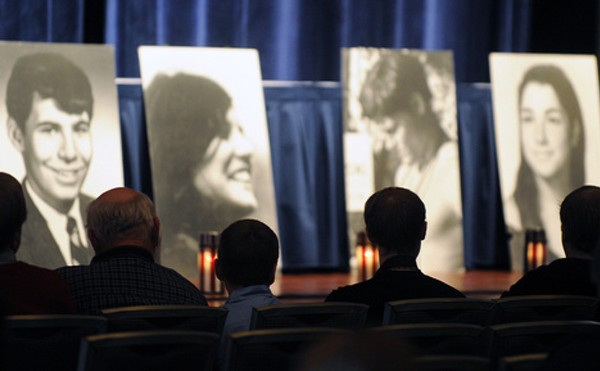Stalin, while teaching his soldiers the easiest, most brutal way to instill loyalty, took a perfectly healthy chicken and violently plucked out each and every one of its feathers. The chicken then followed him around as he circled the room.
The difference between chickens and humans, save the sometimes less-than-obvious capacity for abstract thought, reason, language and the ability to mate for love, is that we homo sapiens who follow loyally and lovingly our abusers and tormentors have usually been doing so from an early age. And the orphaned, the abandoned and the neglected, as adults, gravitate toward those most likely to abuse, abandon and neglect.
It’s what they call a learned behavior.
And it’s harder to quit than heroin or nicotine.
I’m of Scottish-Irish decent, the kind of people who, while we imbibe heavily and have a talent for inventing new and awful ways to hurt one another, rarely turn on friends or family. Anyone familiar with the film “Miller’s Crossing” might recall the loyalty Gabriel Byrne shows Albert Finney, loyalty to a fault, in fact. He goes to tragic and extreme limits to protect his friend from prison and death, a crusade fueled even more by his guilt for sleeping with a whore, his friend’s pseudo-girlfriend, who, like Dante’s Beatrice — a woman who never even waved to the poet who devoted his life’s work to her — would not have given the Irish mobster a second look had he been indigent or even middle-class.
This is the kind of loyalty of which I speak. And while Byrne’s history in the film is not revealed, one can surmise he was not treated very well growing up. At least Finney, in the film, appreciates Byrne’s devotion and returns the sentiment.
This is the exception, not the rule, for people like Tom, the character played by Byrne. Usually, he is surrounded by people who wouldn’t piss on him if he were on fire, despite the sad fact that he would lay down in traffic for any of them.
What can we say about the other tribe, those who go through life hurting everyone, the opposite of the Irish Mob, a group slightly more akin to the Italian-based syndicate so fond of betrayal? (Note: I understand the Irish are also prone to turn-coating, just not as frequently.)
I have spent two-thirds of my 20s dealing with this type of creature with a brief respite in which I, shamefully, became guilty of the same thing, sticking to the rule of loving only those unwilling to love.
These creatures can be seen on display like zoo-captive gorillas, perched on barstools at countless dives. You can probably hear these post-modernist urbanites as they decry institutions and even America itself, unwilling to admit Western culture is what allows them to bask in their growing selfishness, to hurt anyone who gets in the way of the dreams they spend little time working toward and much more time discussing in bars with people who are not listening.
Don’t get me wrong. I am not a patriot. If anything, I am in harsh opposition to individualist cultures where people are starving to death as rich fat cats wine and dine and complain about how dangerous downtown is becoming.
In places like India, as plagued with poverty and class problems as the country may be, people are happier because of loyalty and family. They have a lesser rate of suicide, heart disease, depression and, as it turns out, divorce.
I’m not suggesting we develop a caste system or treat women like second-class citizens. I am simply saying we did not have to give up on the concept of family and cultivate violent crime and divorce rates higher than almost any other civilized nation.
And why do I relate violence to divorce and abandonment?
What kind of people do you think commit murder and assault?
Well-adjusted, socialized individuals who have been loved and respected?
No.
But, I digress.
This particular column is, like the aforementioned creatures, extremely selfish. But, selfishness is sometimes necessary for self-preservation.
This is the end of my long goodbye to all those past, present and future, who look down on people but can’t be bothered to help pick them up.
As perhaps the most loyal mobster in cinema, an Italian, said, “I know it was you, Fredo. You broke my heart! You broke my heart!”





